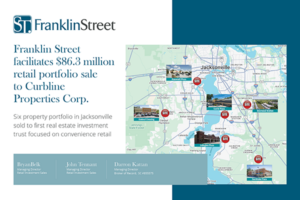TAMPA — The Surterra Therapeutics storefront on Fowler Avenue doesn’t look like the kind of place where people can buy pot.
There’s no green marijuana leaves lit in neon lights nor blacked-out windows. No security guard is checking IDs at the front door. Visitors don’t have to be escorted into another room to see the product.
And that’s on purpose.
As one of seven select companies licensed to grow, manufacture, distribute and sell marijuana in Florida, Surterra Holdings Inc. executives are used to explaining that they’re not in business to be another smoke shop. But that’s tough to do when even the bank lenders, real estate brokers, landlords and insurance agents are wary of doing business with them.
“We’re trying to change the stigma,” said Monica Russell, a spokeswoman for Surterra, who noted even securing insurance for the company’s fleet of delivery trucks has been a challenge. “We want people to come here so they can have a conversation and see we’re actually a health and wellness company.”
Marijuana is still considered an illegal substance at the federal level, despite the 28 states that have legalized it for recreational or medicinal use in recent years. That makes it nearly impossible for banks to fund marijuana distributing companies, which in turn makes it hard to sign a lease for a commercial store or warehouse.
“The short answer is, because federal law makes it illegal to possess or distribute marijuana, this is considered money laundering,” said Robert Rowe, vice president and associate chief counsel of the American Bankers Association. “Banks have generally been steering clear of these companies even if it’s legal in their state. It will take an act of Congress at the federal level to change that.”
Surterra, an Atlanta-based medical marijuana company that operates only in Florida, opened its first retail store in Tampa in October. Securing the real estate for that store, which is located in a busy shopping plaza near the University of South Florida at 2558 E. Fowler Ave., was no easy feat.
“It’s a very slow process to find the right space,” unlike for more traditional retail companies, said Brian Bern, senior director of real estate services with Franklin Street in Tampa, which represents Surterra in its real estate ventures. “Half of the time we get shut down immediately when we inquire about a lease and the other half, people are curious because they just don’t know much about it.”
Some grocery store chains and other major anchoring retailers have clauses in their leases that prohibit the kind of tenants landlords can co-lease to in a specific plaza. It’s easy to interpret a medical marijuana store as one of those types of tenants that a Publix or a Target wouldn’t want to be next to. That attitude may be in part a rollover from what Florida city officials and landlords saw during the height of the “pill mill” crisis, real estate brokers say.
“We are up front and honest about the business right off the bat,” Bern said. “We’re starting to see some slow change in these dated lease agreements, but it’s going to take time.”
While several local governments in Florida counties are waiting to see what laws state legislators will come up with regarding marijuana regulation in Tallahassee this year, more than 30 counties and cities in Florida have approved or are considering moratoriums to regulate how many and where marijuana dispensaries can go. Pasco County limited the number of dispensaries allowed within the county limits to two. Hillsborough County is considering a 30-day window for marijuana companies to apply for a limited number of licenses.
“Because of the local ordinances and existing restrictions in leases for certain strip centers, there are only a handful of very specific places where we could possibly open more stores,” Bern said.
The goal is to open more stores across the state by inviting local government officials, landlords and brokers to come see the business for themselves in Tampa first.
“Usually once they see it, their mind sets change. It’s just getting them to come here instead of dismissing it as something else,” Bern said.
Surterra’s store is bright and open with floor-to-ceiling glass window panes. It has a large dining room-like table in the front near a row of cabinets that looks like a kitchen in someone’s home. That’s intentional, employees say.
“We designed this store geared toward women and their families,” said Stephanie Maruca, an assistant manager at the Surterra store and also a registered nurse. “They’re the ones who care for their families, and we want this to be a comfortable and familiar space.”
An area of the store that Maruca called “the garden” is where Surterra’s products are on display, tucked between succulent plants and fragrance-spewing aroma diffusers.
Unlike dispensaries in states like California and Colorado, anyone can come into the store and ask questions. Maruca says they regularly have patients who stop in with their toddlers or entire families to place an order.
Surterra operates two distribution and grow facilities in the state, one in Tampa Bay and another near Tallahassee. The company’s second retail store is slated to open later this year in Tallahassee.
There are several private offices where staff can talk to patients about doctors recommendations privately or help them apply for the Florida Department of Health state I.D. card required of patients who use marijuana products.
“A lot of what we do now is education,” Russell said. “We’re education patients or potential patients and city employees who work in planning departments about what we do.”
That’s about all they can do, she said, until legislators decide how to regulate the industry as it continues to grow in Florida.
For full story, click here.



